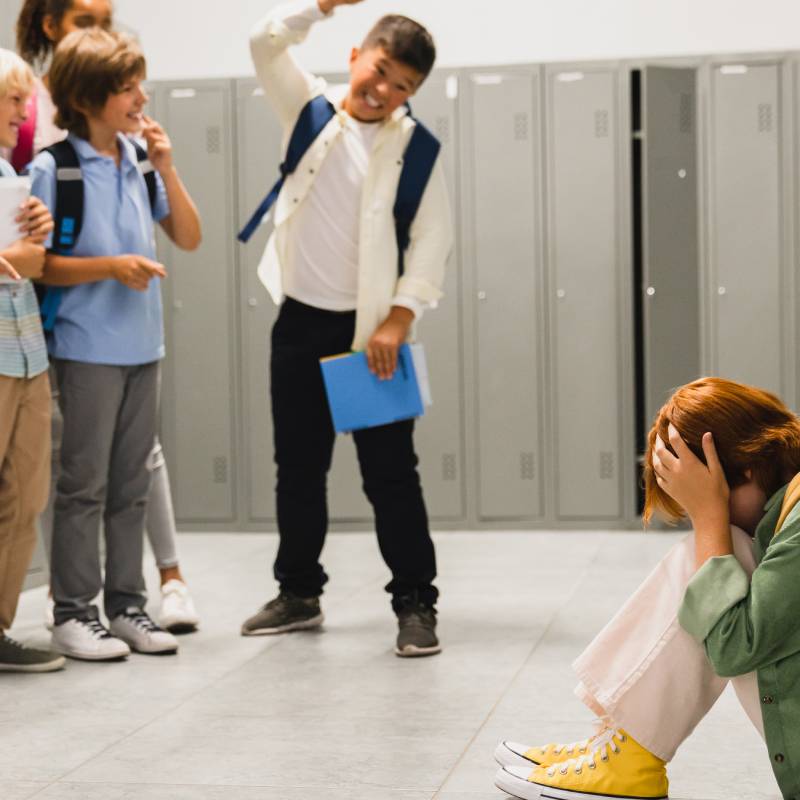United Against Bullying in Sport: The Key Role of Parents, Coaches and Schools

Bullying in sport is an issue that can seriously affect the well-being and performance of young athletes. Fighting this scourge requires the active involvement of parents, coaches and schools, each of which plays an essential role in preventing and managing bullying. Let’s take a look at how these players can take concrete action, illustrated by tangible examples.
The Vital Impact of Parents in the Face of Bullying
Parents have a significant influence on how young people handle bullying situations. They are often the first to notice changes in their child’s behavior or emotional state, which may indicate a bullying situation. Parents can [1]:
- Encourage open communication: Create a family environment where children feel comfortable sharing their experiences and concerns.
- Educate about bullying: Explain what bullying is, its effects, and why it’s important to report it.
- Collaborate with school and coaches: Work together to ensure that anti-bullying policies are in place and respected.
A concrete example might be when Julie, a young soccer player, starts to show reluctance to participate in training and seems anxious before every game, her parents encourage her to express her feelings. They discover that she is being teased by some of her teammates. By talking to the coach and supporting Julie, they help to resolve the situation and restore her self-confidence.
The Crucial Role of Coaches in Bullying Situations
Coaches have a direct impact on team culture and the sporting experience of young people [2]. Their position gives them responsibility for :
- Promote mutual respect: Establish a team culture based on respect, camaraderie and inclusion.
- Identify and intervene: Be alert to signs of bullying and intervene appropriately to put an end to it.
- Educate athletes: Teach young athletes the importance of teamwork, respect for others, and the negative consequences of bullying.
For example, Mr. Lavoie, coach of a basketball team, notices that Thomas is often isolated by his teammates, who make fun of his performance. Lavoie organizes workshops on mutual respect and team spirit, while ensuring that Thomas is integrated into group activities. These actions reinforce cohesion and respect within the team.
School Commitment to Bullying
Schools play a vital role in bullying prevention, not only in academic contexts but also in extracurricular sporting activities [3]. Schools can :
- Implement clear policies: Develop and implement clear anti-bullying policies that apply to all school and sports activities.
- Provide educational resources: Offer training programs on bullying for students, staff and parents.
- Create a support system: Implement systems that allow students to report bullying anonymously and securely.
A concrete situation might be a high school, faced with repeated cases of bullying on its sports teams, decides to implement a mentoring program where older athletes coach new members. This program fosters a welcoming and safe environment, while enabling students to develop positive relationships based on support and mutual aid.
Anti-bullying: Concrete strategies and collaboration
By combining their efforts, parents, coaches and schools can create a sports environment where every youngster feels safe, respected and valued, thereby reducing the risk and incidents of bullying. Collaboration between these players is essential to promote well-being and positivity in sport.
Sources :
[1] Naitre et grandir. L’intimidation: comment la reconnaître et réagir ? Consulté à l’URL suivante : https://naitreetgrandir.com/fr/etape/5-8-ans/ecole/intimidation-ecole-reconnaitre-reagir/
[2] Respect et Sport: Conseils pour reconnaître les mauvais comportements et intervenir. (2020). Consulté à l’URL suivante : https://french.respectgroupinc.com/respect-hub/respect-et-sport-conseils-pour-reconnaitre-les-mauvais-comportements-et-intervenir/
[3] Gouvernement du Québec. (2024). Intimidation à l’école. Consulté à l’URL suivante : https://www.quebec.ca/famille-et-soutien-aux-personnes/violences/intimidation/intimidation-ecole
Karl Demers



